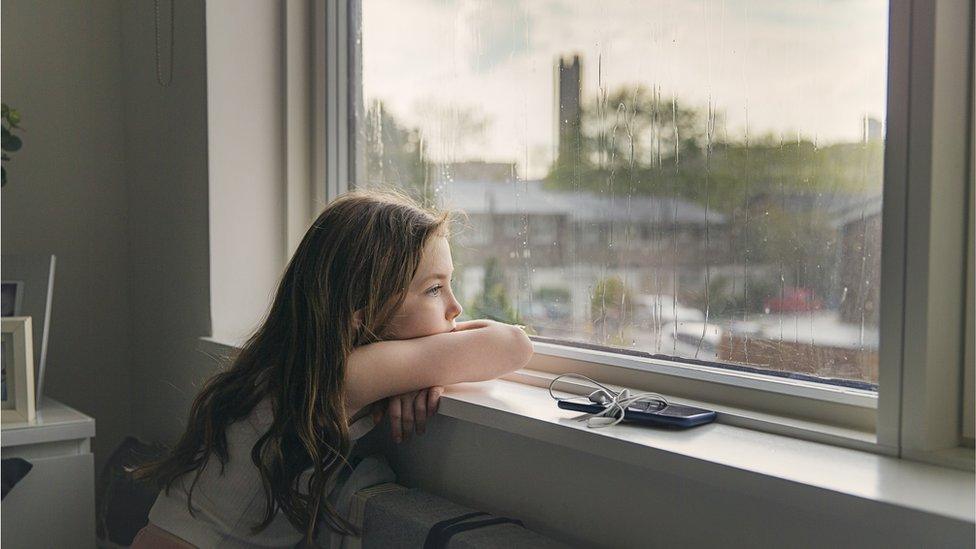Eating disorders: Increase in young teenagers seeking support
- Published
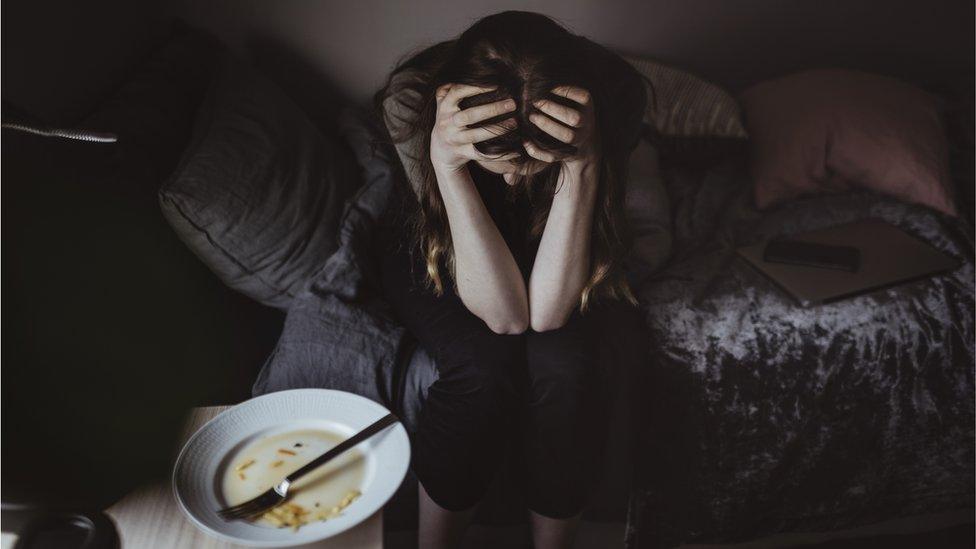
Stormont's Education Committee was hearing evidence on eating disorders among school-age pupils
An increasing number of younger teenagers are seeking support for eating disorders, assembly members have been told.
Eating Disorders Association Northern Ireland's Sian Ogle gave evidence to Stormont's Education Committee.
She said in one case a child deemed an emergency had to wait 26 weeks before being seen by specialists.
The number of young people with eating disorders in England ending up in hospital has risen during the pandemic.
According to a BBC investigation, waiting lists for treatment in England have trebled since the pandemic started, while those that are being seen are having to wait longer for care.

The age of children seeking help was much lower than previously experienced, assembly members heard
In Northern Ireland, the Department of Health (DoH) released figures in June in response to an assembly question from Sinn Féin assembly member (MLA) Órlaithí Flynn which showed that review appointments to eating disorder services rose by almost 40% last year.
In 2019-20, there were 9,969 review appointments for eating disorder services in health and social care trusts, but that rose to 13,792 in 2020-21.
Those figures include both adults and children.
Separate data from the DoH indicates that the number of children and young people between 10 and 19 diagnosed with anorexia nervosa alone increased from 52 in 2011-12 to 81 in 2018-19, according to a research paper from the Northern Ireland Assembly.
However, Eating Disorders Association Northern Ireland (EDANI) suggested that this number could be significantly higher as it does not include individuals who have not been hospitalised - such as those seeking help in community-based settings or those who choose not to seek help.
The Youth Wellbeing NI Survey in 2019 found that "one in six children and young people in Northern Ireland (16.2%) engaged in a pattern of disordered eating and associated behaviours that might indicate the need for further clinical assessment," for example.
EDANI is a charity which offers support and services for families affected by eating disorders such as anorexia or bulimia.
The charity also works with public health bodies and is a member of the Eating Disorder Forum of Northern Ireland.
'Children reaching out themselves'
Ms Ogle told MLAs that during the pandemic the age of children contacting the charity was "much lower than we previously experienced, with several children as young as 13 or 14".
"Usually it's parents getting in touch to discuss their children but sometimes we actually have the children reaching out themselves," she said.
"The people who are contacting us at the moment are a lot more unwell than we have previously experienced."
Ms Ogle said that anorexia-type symptoms were the most common presentation to EDANI, but since the summer of 2021, more children were coming forward with bulimia or binge-eating disorders.
She said EDANI had 2,000 requests for support in the past year alone, but it was difficult to get overall data on the prevalence of eating disorders in Northern Ireland.
"The data only captures people that are within the trust's care system, they don't capture people at a primary care level," she said.
"I can tell you who reaches out to us but that is obviously only the tip of the iceberg of who is actually out there."
Early intervention 'so important'
Ms Ogle told MLAs that the pandemic meant more children were "being exposed to known eating-disorder risk factors than there would have been before".
These could include a lack of social interaction or support, traumatic events or being unable to access appropriate health services.
"We have heard the case where a child that was deemed an emergency was told they had to wait 26 weeks before they would be seen," she said.
"Early intervention is so important to eating-disorder recovery so that's not what we want to hear."
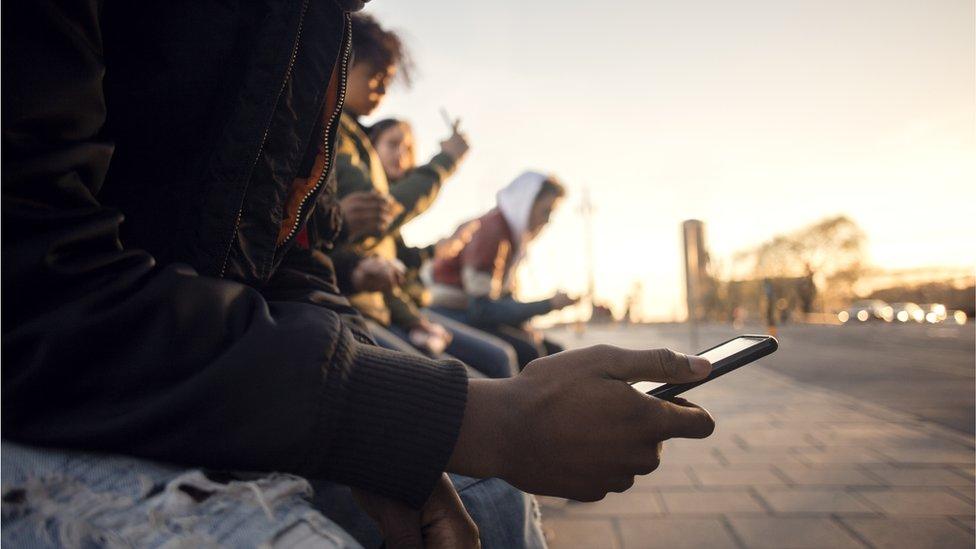
There are increasing numbers of young boys coming forward for help, the committee was told
In response to a question from committee chairman Chris Lyttle, Ms Ogle said more boys were now coming forward seeking support for eating disorders.
"We would normally see a ratio of one boy to four girls," she said.
"We're increasingly seeing young boys but again it's the severity of illness that we're seeing in children so young that we wouldn't have seen before."
Need for better autism services
Ms Ogle also said there was a particular need for better services for children with autism or ADHD.
"We're actually seeing young people who are not getting the help to manage their autism or ADHD symptoms who are then going on to develop eating disorders as they struggle to cope without the appropriate support," she told MLAs.
The committee deputy-chairman, Sinn Féin MLA Pat Sheehan, asked Ms Ogle if the pandemic and lockdowns would "throw up further problems and difficulties in terms of emotional health and well-being for young people?"
"I have concerns on multiple levels," Ms Ogle replied.
"The strain on services was already there before the pandemic and now with so many more young people becoming unwell and more people being exposed to these risk factors we're just adding more and more and more on to a longer waiting list."
In an answer to an assembly question from the SDLP MLA Cara Hunter in July 2021, Health Minister Robin Swann said he was "acutely aware that the onset of the Covid-19 pandemic has disproportionately affected people with eating disorders".
Mr Swann also said that on average 17 adults a month over the last two years had to wait longer than nine weeks to access eating disorder services.
The minister said the new mental health strategy contained a commitment to enhance the regional eating disorder service.
Health professionals have also previously said they expect a "surge" of issues about children's emotional health due to the coronavirus pandemic.
- Published22 July 2021
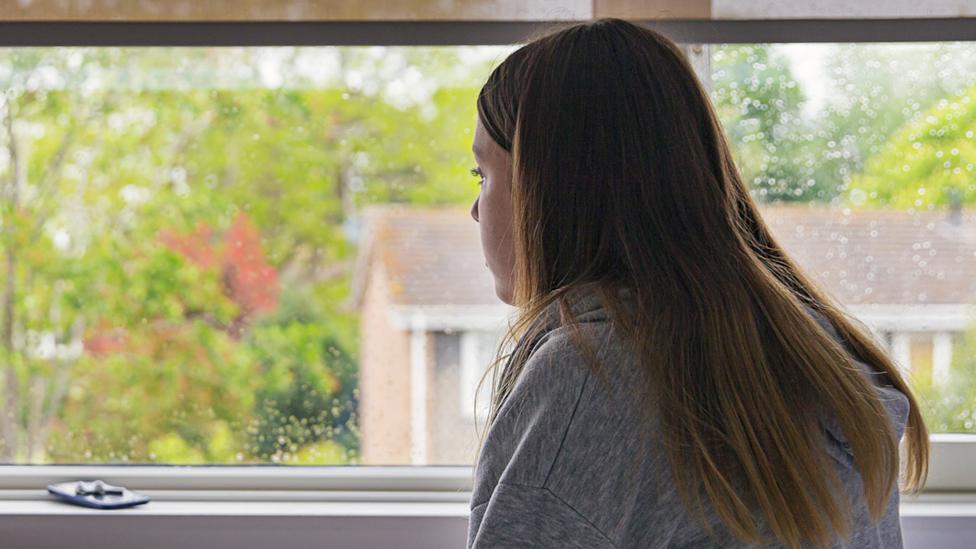
- Published29 June 2021
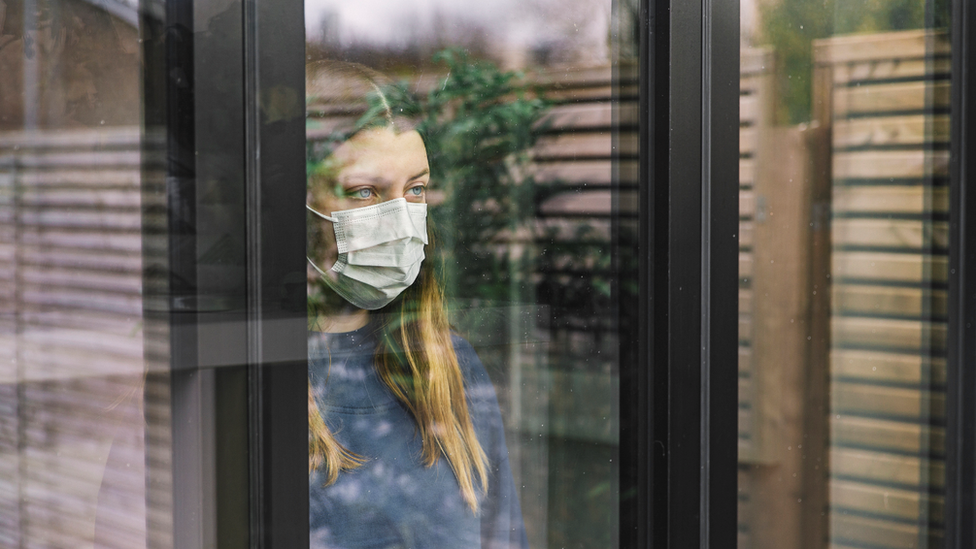
- Published28 August 2021
